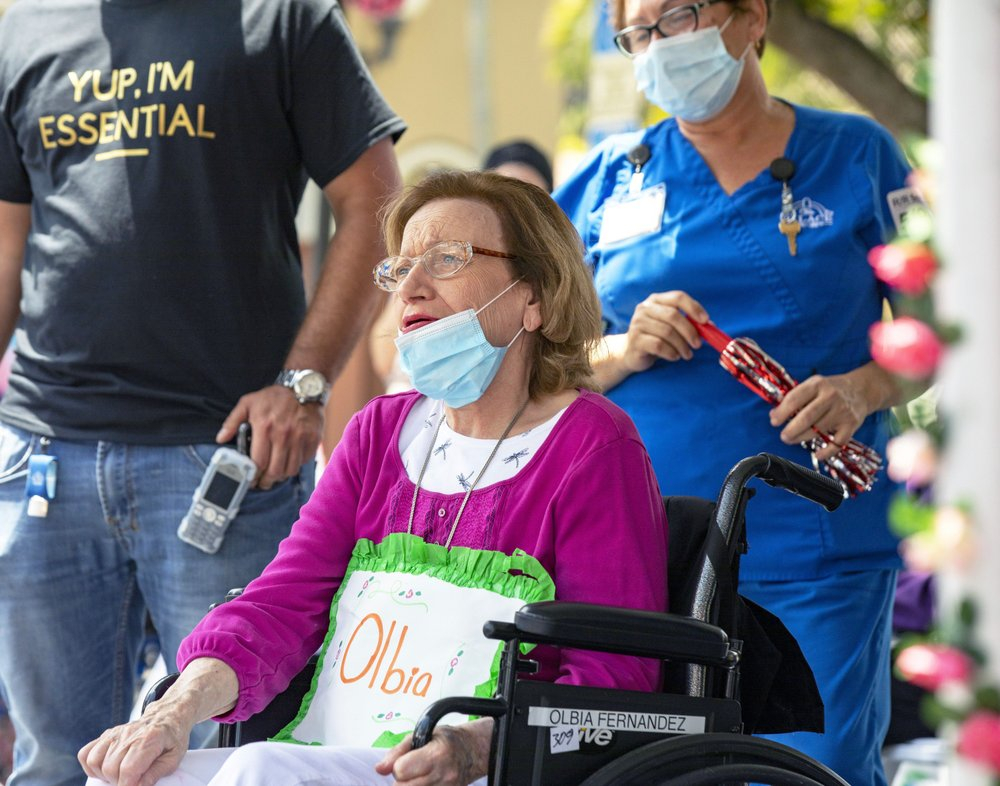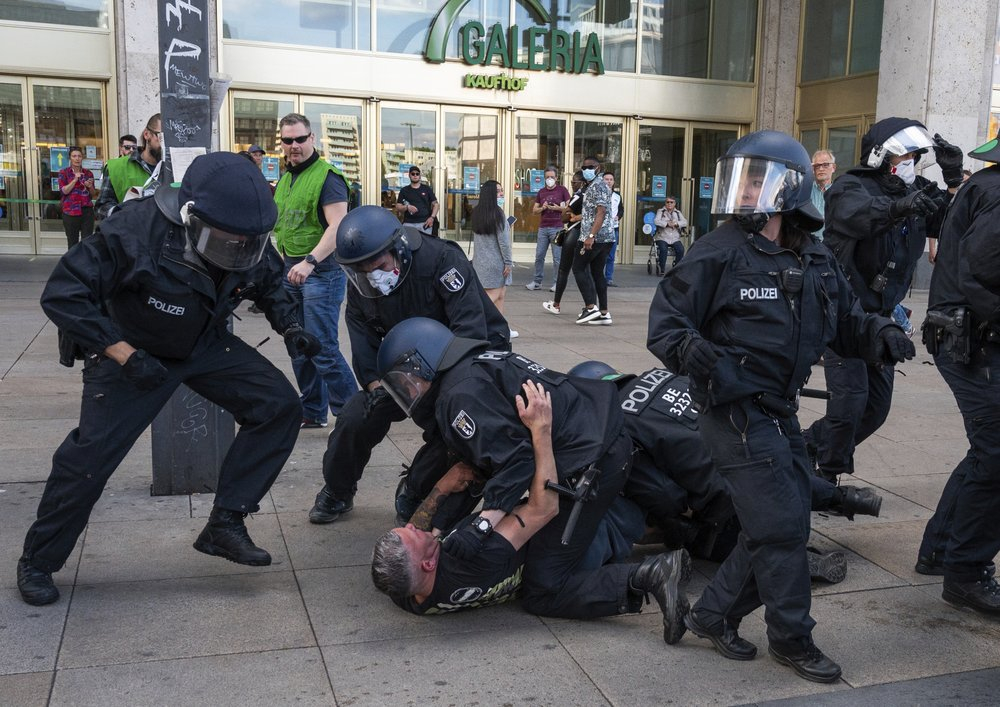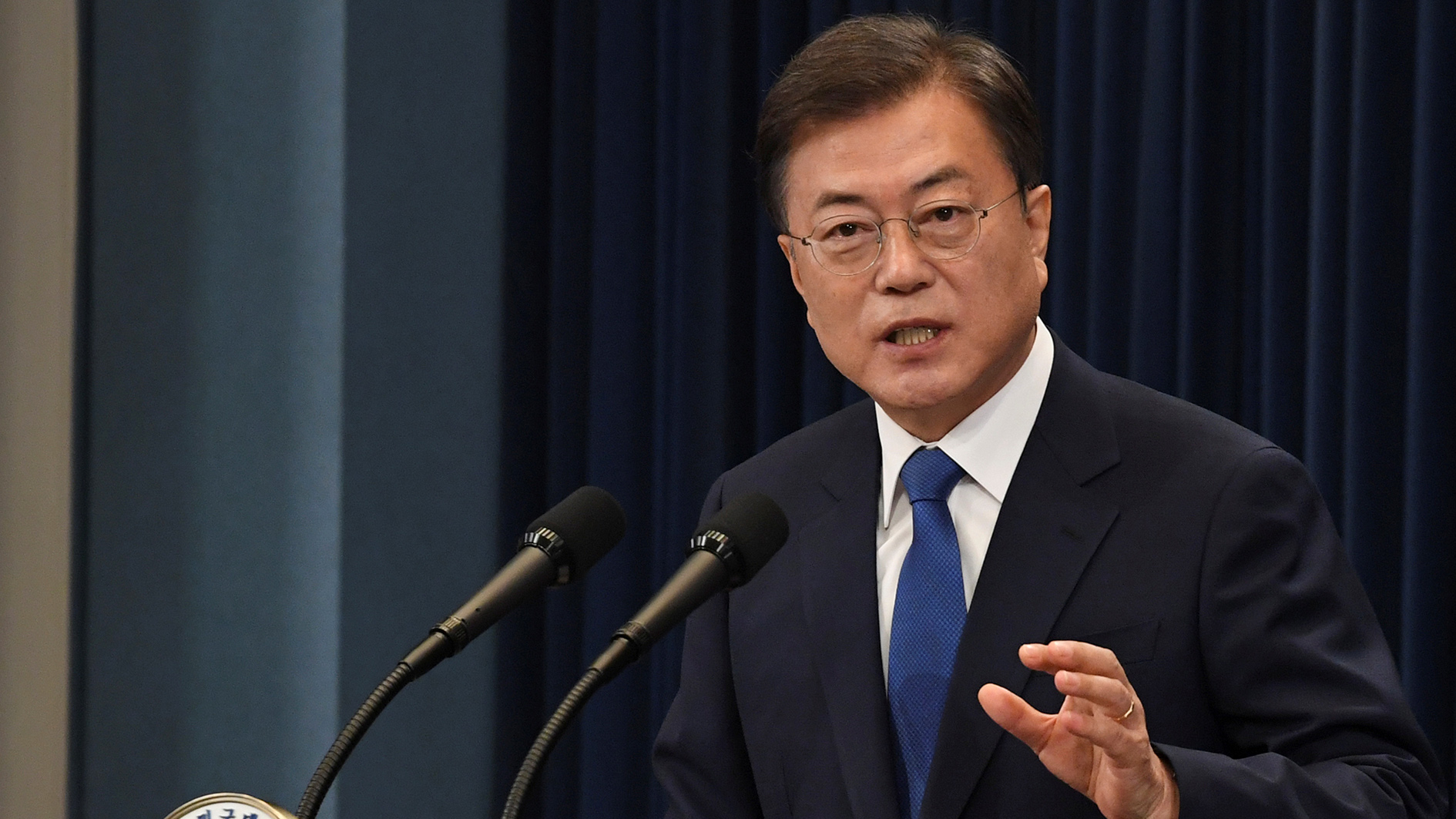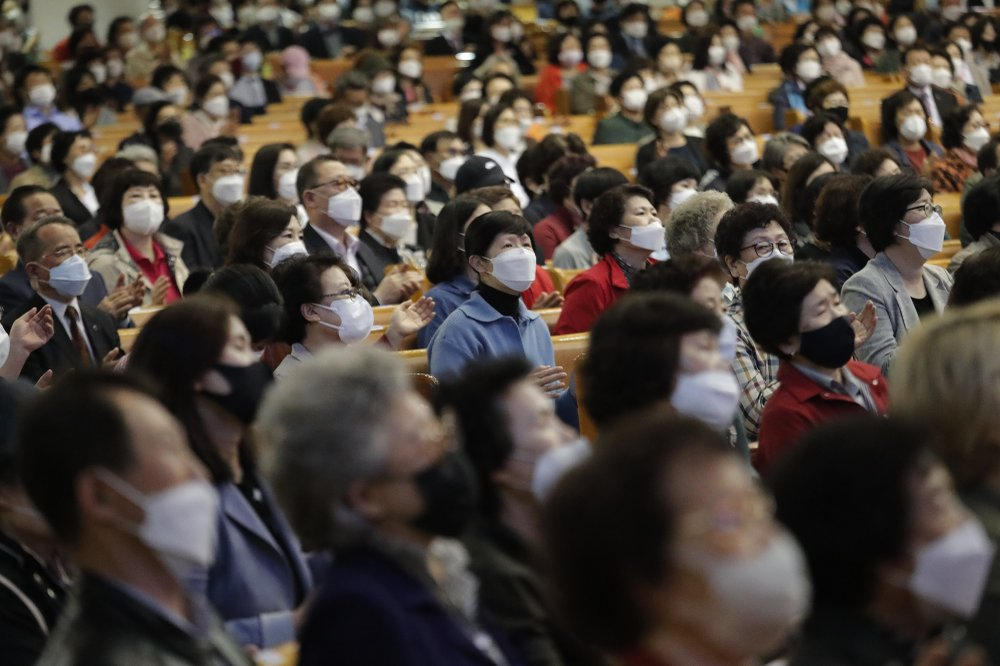Editor's note: This is the 58th article in the COVID-19 Global Roundup series. Here is the previous one.

Olbia Ferrer looks at her family as they wave to her from their vehicle during a Mother's Day drive-by caravan to honor the mothers living at The Palace Renaissance & Royale, an assisted living facility in Kendall, Florida, the U.S., May 9, 2020. /AP
Olbia Ferrer looks at her family as they wave to her from their vehicle during a Mother's Day drive-by caravan to honor the mothers living at The Palace Renaissance & Royale, an assisted living facility in Kendall, Florida, the U.S., May 9, 2020. /AP
Trump administration officials spoke optimistically about a relatively quick rebound from the coronavirus Sunday as life within the White House reflected the stark challenges still posed by the pandemic, with Vice President Mike Pence now "self-isolating" after one of his aides tested positive.
A balancing act was playing out the world over, with leaders starting to loosen lockdowns that have left millions unemployed while also warning of the threat of a second wave of infections.
Treasury Secretary Steven Mnuchin predicted the American economy would rebound in the second half of this year from unemployment rates that rival the Great Depression. Another 3.2 million U.S. workers applied for jobless benefits last week, bringing the total over the last seven weeks to 33.5 million.
"I think you're going to see a bounce-back from a low standpoint," said Mnuchin, speaking on "Fox News Sunday."

Police officers apprehend a man at a demonstration on Alexanderplatz in Berlin, Germany after several hundred people gathered for an unsanctioned demonstration, May 9, 2020. /AP
Police officers apprehend a man at a demonstration on Alexanderplatz in Berlin, Germany after several hundred people gathered for an unsanctioned demonstration, May 9, 2020. /AP
But the director of the University of Washington institute that created a White House-endorsed coronavirus model said the moves by states to reopen businesses "will translate into more cases and deaths in 10 days from now." Dr. Christopher Murray of the Institute for Health Metrics and Evaluation said states where cases and deaths are going up more than expected include Illinois, Arizona, Florida and California.
In a reminder of the continued threat, Pence followed three members of the White House's coronavirus task force who placed themselves in quarantine after coming into contact with the aide.
Families, meanwhile, marked Mother's Day in a time of social distancing. For many, it was their first without loved ones lost in the pandemic. Others sent good wishes from a safe distance or through phone and video calls.
The virus has caused particular suffering for the elderly, with more than 26,000 deaths in nursing homes and long-term care facilities in the United States, according to an Associated Press tally.
At a senior center in Smyrna, Georgia, 73-year-old Mary Washington spoke to her daughter Courtney Crosby and grandchild Sydney Crosby through a window.
Andrew Cuomo, whose state is the deadliest hot spot for the virus in the U.S., said he looked forward to getting back to normal. "We're going to have fun, and then you can spend more time with me. I know I am your favorite," he said in a playful dig at his siblings.
He also announced two policy reversals a day after an Associated Press report in which residents' relatives, watchdog groups and politicians from both parties alleged he was not doing enough to counter the surge of deaths in nursing homes, where about 5,300 residents have died. Nursing home staff in New York will now have to undergo COVID-19 tests twice a week and facilities will no longer be required to take in hospital patients who were infected.
The U.S. has seen 1.3 million infections and nearly 80,000 deaths, the most in the world by far, according to a tally by Johns Hopkins University. Worldwide, 4 million people have been reported infected and more than 280,000 have died, over half of them in Europe, according to Johns Hopkins.
00:49

South Korea warned of a second wave of the new coronavirus on Sunday as infections rebounded to a one-month high, just as the authorities were starting to ease some pandemic restrictions.
"It's not over until it's over," President Moon Jae-in told the nation, saying a new cluster shows the virus can spread widely at any time, and warning of a second wave later this year.
The Korea Centers for Disease Control and Prevention (KCDC) reported 34 new infections, the highest since April 9, after a small outbreak emerged around a slew of nightclubs, prompting the authorities to temporary close all nightly entertainment facilities around the capital.
The death toll remained at 256.
Health Minister Park Neung-hoo said the government will decide on whether it will reopen schools in stages starting from May 13 as planned after examining the impact of the nightclub cases for two to three days.

People wearing face masks attend a service at the Yoido Full Gospel Church in Seoul, South Korea, May 10, 2020. /AP
People wearing face masks attend a service at the Yoido Full Gospel Church in Seoul, South Korea, May 10, 2020. /AP
In the U.K., Prime Minister Boris Johnson announced a modest easing of the country's coronavirus lockdown but urged citizens not to surrender the progress already made.
Those in the construction or manufacturing industries or other jobs that can't be done at home "should be actively encouraged to go to work" this week, he said. Johnson, who has taken a tougher line after falling ill himself with what he called "this devilish illness," set a goal of June 1 to begin reopening schools and shops if the U.K. can control new infections and the transmission rate of each infected person.
"We will be driven not by mere hope or economic necessity," he said. "We're going to be driven by the science, the data, and public health."
In Germany, which was also celebrating mothers, officials made an exception to allow children who live outside the country to enter for a Mother's Day visit. Germany's restrictions currently forbid entry except for "compelling reasons," such as work.
Germany, which managed to push new infections below 1,000 daily before deciding to loosen restrictions, has seen regional spikes in cases linked to slaughterhouses and nursing homes.
France is letting some younger students go back to schools on Monday after almost two months out. Attendance won't be compulsory right away. Residents of some Spanish regions will be able to enjoy limited seating at bars, restaurants and other public places Monday, but Madrid and Barcelona, the country's largest cities, will remain shut down.
China, where the virus was first reported, reported 14 new cases Sunday, its first double-digit rise in 10 days. Eleven of 12 domestic infections were in the northeastern province of Jilin, prompting authorities to raise the threat level in one of its counties, Shulan, to high risk, just days after downgrading all regions to low risk.
Authorities said the Shulan outbreak originated with a 45-year-old woman who had no recent travel or exposure history but spread it to her husband, three sisters and other relatives.
(With input from agencies)